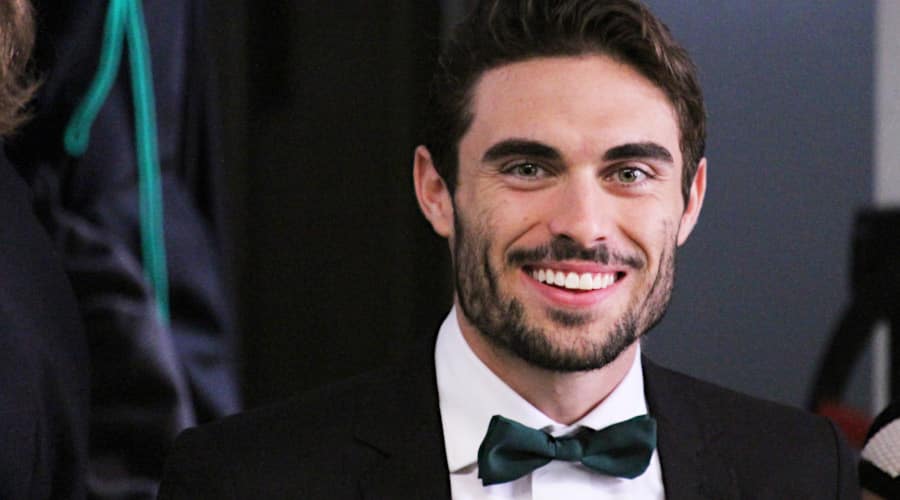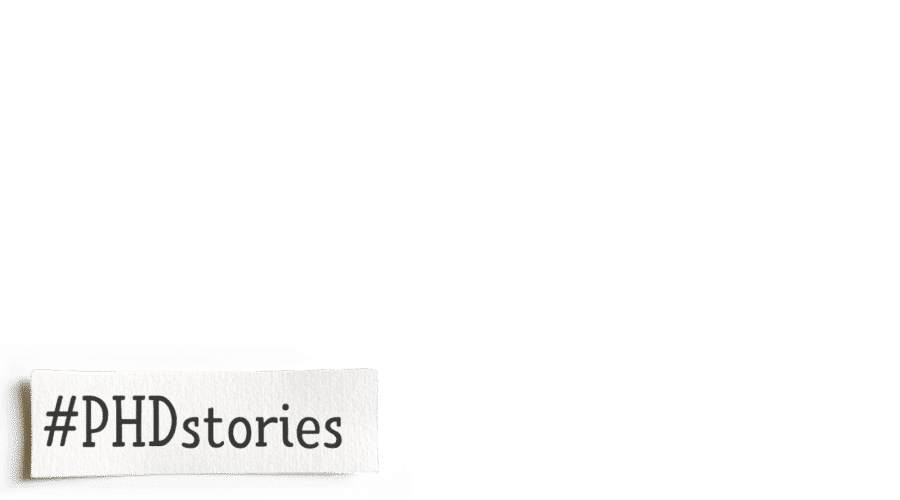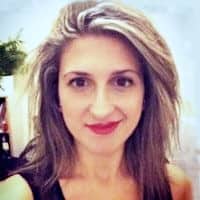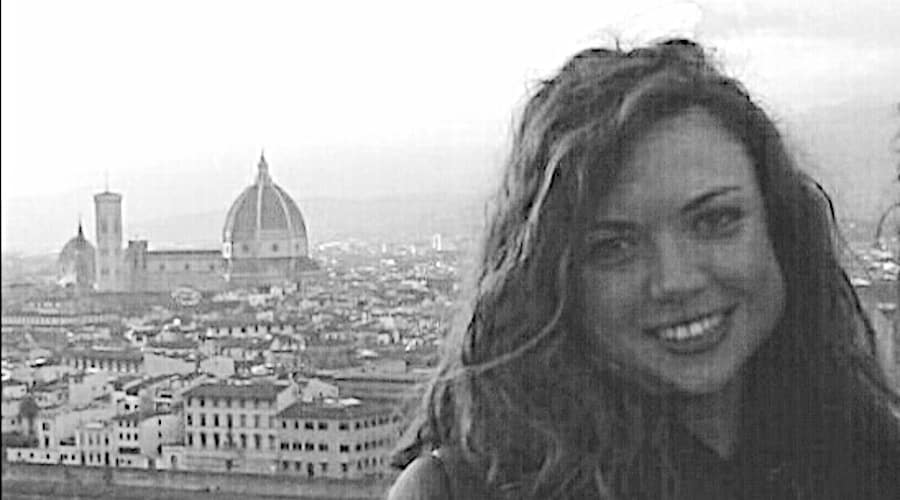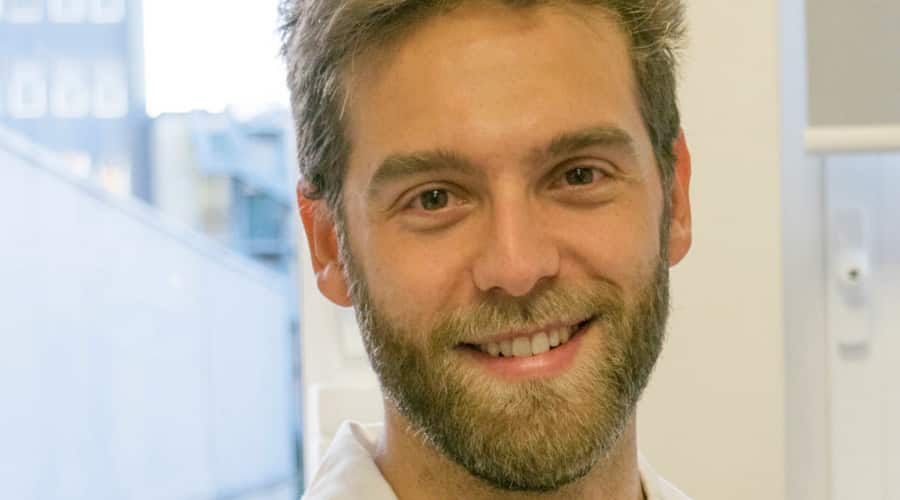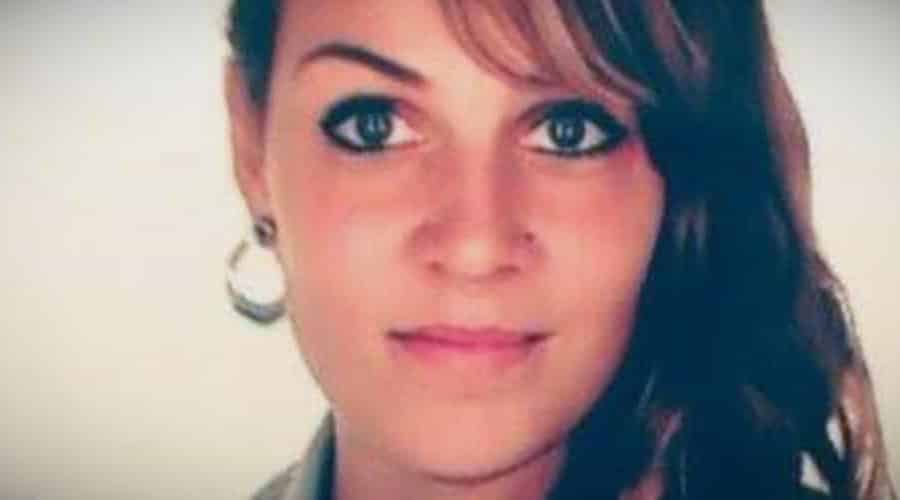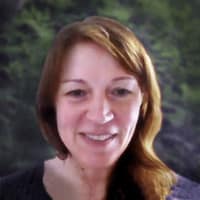Read the transcript of Clarissa Rios Rojas's Video here ◂
Nerina: Thank you, Clarissa, for joining me. Could you please introduce yourself?
Clarissa Rios: I am Clarissa Ríos Rojas, form Peru. I am a molecular biologist, and now I’m working in the interface of science and policy making, the European Commission in Italy and also, I’m the founder and director of Ekpa’palek, which is an organization that empowers Latin-American professionals.
Nerina: Could you tell us a little bit more about your position and your work right now?
Clarissa Rios: My project right now at the European Commission is to write recommendations for citizen engagement initiatives in the topic of social and ethical aspects of emerging technology, in this case, genomics and gene editing, and so on. So, for what I have found on my research so far, is that technology goes faster than policies, and sometimes it’s really hard to keep track of everything that is happening, and to implement the laws and the policies that need to be implemented in order to regulate science, as well.
So science, as we now, is research and innovation, but sometimes it goes to the next steps and becomes a start-up or a company that offers services that can be used for different reasons and by different types of people. I have seen right now that there are, for example, genetic testing companies offering a lot of ancestry testing and health testing, so it would be good to know who’s regulating these companies; are really experts the ones who are providing the information about your genes? What happens with your DNA once it is stored in their company? Is it in store forever or is it sold to another company? Can they trace it was your DNA?
These are things that are happening right now, and people don’t really know much about it. For example, genomics is also working at the interface with blockchain, so now we are having cryptocurrecy that is based on selling your DNA data, so what does that represent for business and society? Again, we have those ethical questions, but does it really help big companies to have more genetic data to have a better analysis of which diseases can come from different types of genes? There are many things that have to be evaluated, but it’s important to citizens to know what is happening, where it’s happening, and what is going to happen in their society if they accept it, or if they are consumers or become users of it.
Nerina: Why did you decide to take this new challenge?
Clarissa: I think that the in the European Commission, the Joined Research Center is the best place to learn about how scientists can contribute to society in terms of policy making, so I thought that this would be the best place to work and learn and contribute to, and I hope that this will be one of the first steps into a career and to a lot of work; I hope to use science-based evidence to create policies and help policy makers to better understand not only the citizens, but also the science behind every decision.
Nerina: Why is this relevant?
Clarissa: I think that the biggest problem that I see right now is that scientists are doing science just because; just because of curiosity and I now that’s a main drive that many of us had to become scientists, but I think we need to build places or spaces where we as scientists can speak with citizens. We can understand what are their needs, because I have seen during my time as a scientist that there are many projects that really don’t have any implications in solving anything at the moment; it’s just knowledge that is being generated with the hope that in the future is going to be used.
We can relocate not only the money, but the human capital, the PhD students that are being put into these projects, into something that society really needs. I think that we should have a priority table and see what the problems to see how we can fix the first hundred, instead of having fifty thousand projects and giving money to all of them and keep going.
I think that basic research is important, but I also think that basic research should be always tailored into fixing something, or producing some kind of technology. Without that, I think trust in science will never be achievable because citizens see this, citizens see their taxes are being used in projects that may never be published, that cannot be replicated, or that are not helping anything in their communities and local problems, and that just one side.
I also see that there is a problem with citizens not learning or trying to have some curiosity about science. I think they could interact more with scientists, see what they are doing, visit open days at universities, see where taxes are being used and have an opinion about it and learn from scientists, what they are producing, how they’re doing and use this scientific knowledge in order to make better decisions on the government they’re going to choose, about the political party they are going to vote for, what is this political party focusing on. Is it correct? Is it based on science, which is the most trustful thing that se have at the moment? Of course, it has its pitfalls, but it’s the best thing that we can work with.
The citizens should also think on how to improve science. If they don’t have faith in science, then tell us how we can improve it, how can science and society and citizens work together in order to make science better , achievable for everyone, and open in a way that everyone can understand it, and use it for the best of society and the environment, because sometimes we are just super anthropocentric and thinking about humans, but we are responsible, whether we want it or not, for all the species that are around us, and the ecosystems and the habitats we have, so I think that we should take our citizens’ role a little bit more responsibly.
Nerina: What would you suggest?
Clarissa: I think that’s why I was mentioning before that we should have these spaces where scientists can talk to other scientists, for example, about social science, as I talk about the ethics. I know that during university we have courses on ethics – animal ethics and human ethics -, but I think that we should have also courses with politics in science. Have courses where we bring politicians and scientist to understand how we’re both working together and making things better.
Other courses could be about scientists and citizens, and scientists and society, and create debate between them, answering questions form both sides, and trying to think how we can work together, because as you said, the theory of science in great, but who is doing the science? Us humans, with our imperfections, with our sometimes poor equipment, and with the limited knowledge that we have. I think it’s very important for scientists and citizens to acknowledge that scientists are not perfect; they are humans and make mistakes, and also the equipment and machines that they use make mistakes from time to time, but then having that as a premise to figure what we can do based on that, and then is when all these interactions with all the different groups take place, and then all three groups together can think about how science can be better, how can it have less errors and less mistakes, and how to bring all the traditional knowledge into it, as well as the ethics and the social aspects.
Sometimes we think that the problem has to be fixed by only one expert. That, for example, climate change has to be fixed by an environmentalist or a biologist, when in reality, problems are fixed by everyone. By economists, lawyers, citizens, biologists; it has to be fixed by everyone, because otherwise we are not creating a solution, we are just fixing a little patch, not the whole picture.
Nerina: You just mentioned traditional knowledge, and this is something that very often comes up when speaking with you. Why this interest in aboriginal culture?
Clarissa: Yes, well, my dad is from the jungle. Of course, he is part of an aboriginal community, but I guess that was my first encounter with aboriginal tribes and with people who are part that whole society. Also, when I was working with one of the agencies in the Ministry of Environment in Peru, one part of my job was to try to understand the narratives and how to bring the projects that the government had for these communities, how to make them learn, and how to learn from them what were their needs and priorities, and I think that all these encounters made me realize that they are not heard enough, their voices are not shared enough, their needs and their priorities are not communicated, and sometimes, with friends, I’ve heard them say things like “No, they should evolve like us, like the city people”, and I’ve been hurt by those comments, because I feel like our opinions are too superficial always, not just in these topic, but in many. It’s just something that has not has been thought through, you have not had an encounter with them, so how come you have a conscious and educated opinion about that?
For example, Ekpa’palek is a way to promote indigenous languages. Ekpa’palek comes from the Shiwilu language, form the Amazon in Peru, and it means to teach a little kid to take his first steps. Trying to translate everything in our programs on indigenous communities is a way to make it more accessible.
Nerina: You are the founder of Ekpa’palek. Can you tell us more about this organization?
Clarissa: We are an organization of around 45 to 50 people, and what we do is to offer programs for free to any Latinamerican students that want it. One of them is the professional mentorship, so we connect the students with professionals that are a little bit advanced in their careers so they can guide them, they can talk, they can tell them how to gain certain scholarships, but also about what’s out there. If I am a psychologist, if I am an economist, I want to know what’s happening in Australia, what’s happening in China, so that person can get inside information, so students in Latinamerica can shape their minds thinking about what’s next, and they should be studying now, or working on, or doing an internship with.
The second program is women empowerment. The first year, we were bringing new women from all over to schools; we had five professional women bringing their stories, bringing their pitfalls, the experiences they had been through and how they got where they are now. That worked for one year and then we had to stop it, so now we are focusing more on campaigns on line; we are doing the same, showing new women role models but in a visual way. We have engineers, economists, from different parts of the world that are Latinamerican women, and then they send a three minute video telling how they are there and why they decided on that career.
The third program will be the empowerment of indigenous languages, so basically we want our programs to reach everyone. We have started translating the articles on our blog into Quechua, which is a language that is spoken in Peru and Bolivia, and it’s a official language in Peru as well. Also, we have tree videos in Quechua, as well; we had one of our mentors make theses videos, telling how he went from a little town in the highlands of Peru to do his Master in France, and to study in Lima, Peru, as well. We are trying to promote translating everything that we are producing into different languages, not only Quechua.
Nerina: What motivated you to start this organization?
Clarissa: Well, because when I started my professional path, I was a bachelor student that really wanted to learn and to go more from theory to practice, and that was something that was not happening in Peru in terms of molecular biology. I think my motivation was to learn more, and I could do it with scholarships and people helping me take the next steps, as you mentioned, and then after ten years of doing my master and my PhD I realized that I was not the only one, and that the case that I had ten years ago where I didn’t have money to pursue studies, I didn’t have connections to create opportunities in professional development were still existing in Latin America, and we were at a disadvantage with the rest of the world.
So I thought about what I could do with this tools that I had gathered over the years, and one of them was my network. So I think it was really personal, because it was not that I was trying to fix something that happens somewhere else to some other people, but I was trying to help someone like me at this moment, someone who didn’t have opportunities, didn’t have the network, didn’t have ideas, or someone from outside to talk to and just get inspired.
Nerina: How did you become what you are now?
Clarissa: I studied Biology and Genetics in Peru; I was very interested and curious about science. Then I went to Finland for exchange studies, and I did a Master in Biomedicine and Neuroscience, which I was also completely in love with, specifying different types of neurons in the brain, and then I decided to move to Australia to do my PhD in sex development; how the sperm cells and the egg cells develop.
When I was finishing my PhD was when I decided to create Ekpa’palek, this organization that empowers Latinamerican professionals. And then, looking at the results and the people that we were helping, I started to realize that a nes passion was growing inside myself, and then I decided to leave the lab where I was doing experiments and start to communicate with citizens and policy makers and start to find a way where I could use my scientific background and I could help society in a different way, and that way is creating better policies for everyone. Now it’s in the European Union, but later I hope it will be in Latinamerica and in Peru.
Nerina: What is the most important lesson that you have learned?
Clarissa: I started this project thinking that I would help many people, but I’m being helped as well. I’m learning so much, I’m meeting so many people, we are doing so many nice projects outside Ekpa’palek as well. This has also motivated me to change my career; as I said, I was working in the lab as a scientist, and the Ekpa’palek happened, and then I started to pursue new paths within myself that make me happy, so what I would recommend to anyone is that if you always think that there is a problem and you want to fix it, try to do it with one friend, and it may grow and it may not, but you have the satisfaction to learn from it.
Nerina: What is your vision for Ekpa’palek?
Clarissa: When I created Ekpa’palek, it was only for Latinamericans, but in my wild dreams we have Ekpa’palek Asia and Ekpa’palek Africa interacting with each other. But that is also based on the idea of the «brain drain» – I think that’s what they call it in English -, when professionals and all the talent goes from the south to the north and then never go back, or just a few of them. So I thought it would be very interesting to have a blog of developing countries in the south, exchanging professionals, exchanging knowledge, exchanging what we already know how to do best, and empower each other, because the south also need to keep growing, to keep learning, and it would be really good to create these alliances between universities, student associations, and governments, and think about what are the good things and benefits that can come from it.
Of course, going to the north and having the technology to learn is really good, but I think the next step on that path could be to start doing these collaborations.
Nerina: Is there something you believe we should think more about?
Clarissa: I would just like to point out that we are creating so much technology, and these technologies are mostly created in developed countries, and are mostly created to fix and find solutions for local problems, so that means that the problem that, for example, indigenous communities have will never be solved by the technology that we are creating now, and I think they would benefit so much from that.
Sometimes we are talking about gene editing and blockchain, and how does that benefit indigenous communities? They are people who also have struggles and many local problems that they would like to solve; how good would it be if used these technologies to find solutions for those problems as well? So that would be my contribution, to make people think about technology is being biased towards certain problems, certain “local” problems, and not really towards developing countries and indigenous communities.
Nerina: And what is the relation between science and traditional knowledge, in your opinion?
Clarissa: It has always been known about, this traditional knowledge. Sometimes it is treated with respect, and sometimes it’s treated like it’s not science. It’s very curious that you ask me this, because in my group, one of the projects is about mapping arctic communities, so they are mapping every community that is Finland, Norway, Iceland, U.S, Canada, and besides doing the mapping, they are gathering the information that they have in the terms of climate change. They’re voices about climate change and how that’s impacting them in the first place because they are close to the first places where the impact is being observed, and what they have to say about.
I think that nowadays it is taken more seriously, and I’m glad to see that the European Commission, for example, is also taking them seriously and writing reports about it, having their voices heard and their opinions shared with policy makers and with people in the European Union.
I’ve seen this happening in Europe, but I have not seen it in Latinamerica. However, when I was working at the agency of the Ministry of Environment, I could see that the interaction between the experts, the biologists, the chemists was really open when they were informing them about what was happening, I think the efforts are becoming more and more important, and in order to listen from them as well, not just coming and giving a lecture about what is going to happen and what they need to know, but also empowering them in teaching them how to use equipment to measure pollution, how to analyze data so they can have their own data analyzed. Also, I heard that in Bolivia, if you want to be part of the government, you have to speak one of the indigenous languages, and I think that’s important, because, for example, for these types of jobs you can speak in Spanish and then you have a translator, but how would it be if you could speak to them in Quechua, in Aymara, and hear them, so they also feel more comfortable in sharing their ideas in their own language.
I think languages are a very powerful thing. I am going to learn more about different types of languages because I think that is the way to really go into a deeper connection with someone, especially if you’re working in this field, and understand what they want to see in their environment, what they want to contribute to the government, for example, in terms of analyzing the data, letting them know when they see a case of contamination, on the river, on the cause, etc.
Nerina: Do you have a wish or a dream?
Clarissa: Yes. I really dream sometimes that there is a society that is respectful of everyone, but more than anything, they have empathy. Everyone in this society has empathy that makes them really feel how the other person would feel in every situation, not only in how we interact as friends, but in different geographical parts. How these people may feel in different social classes; how these people must feel, what can I do to help this person. I think empathy should be the key factor in this society that I envision.
I think the society that I dream of in one where there is the feeling of connection and belonging with every single part of this habitat; not only humans, but plants, insects, birds, the rivers – I mean, the water we drink comes from the river -, so I think that connection is missing sometimes. We don’t feel like we belong or that we are part of something bigger that needs us to take care of it and to contribute to keep it going in a healthy way, so I think if that could be spread into all citizens and make them feel responsible for each other, for other species, for the soil, for the river, for the climate, it would be my second wish. That feeling of belonging and connection.
Nerina: What was the most beautiful day, and what was the mist awful one?
Clarissa: I think the most beautiful day for me is just being with my family having lunch together. It is something that I haven’t had for many years as a daily thing. I did a little bit when I finished my PhD; I could go back and leave again for six months back in Peru with my family, so I think my most warm and beautiful feeling is to have just that: my mom, my dad, my brother, now my partner as well. Laughing, talking about what happened during the day, maybe complaining about something that happened at university or at our jobs, just sharing and being together in a peaceful, quiet place.
Maybe the most horrible moment has been when sometimes I feel that I’m in a place where there is just too much horror, too much darkness, that all the good things really don’t compensate for the bad things, and that it’s not a nice world. Sometimes I feel like this world is the hell of someone else, or is the imagination of how hell should be, because I see so many awful things, so much suffering, even though I’m not experiencing it myself. I’m not a someone that has been a sex slave, or someone that has been raped, or someone who wakes up with bombs ten meters from them, but I still feel like it could be me, I feel people don’t deserve to grow in an environment like that; they didn’t ask to be born in this world.
I think those have been the hardest moments in my life; just to be overwhelmed by sorrow, by sadness, and to think that there is really nothing that we can do to change it, I’ve had those times as well. I think activists are always in that twilight, where you think that everything can get better if you do something, but you’re also on the other side where you think that everything is horrible and terrible and too much to take in.
Nerina: And what brings you up?
Clarissa: What brings me up is to see people doing amazing things. Because I’m doing Ekpa’palek, for example, I’m in touch with different organizations and meet people that are always doing something, and I see them and I think that there is hope.
There are a lot of amazing people doing things for animals, for the environment, for other humans, and I thin, Yes, things can change. At some point.
Nerina: What is life about, Clarissa?
Clarissa: I think life is about learning, experiencing all the feelings; sadness is part of and part of what we are as humans. I think we should be grateful that we can experience it, although it’s not a nice thing, but sometimes good things come out of it. Sometimes, not always.
It’s about meeting other people; trying to be, as Maya Angelou said, a rainbow in someone else’s cloud, and just to try and make other people happy, because sometimes you’re sad and the other can make you happy. Sometime the other person is sad and you can make them happy.
It’s just about trying to enjoy what we have. Talking as a biologist, we have theses fabulous senses of touch, smelling, seeing. It’s enjoying theses things that we can give ourselves. About learning more about what’s happening in all parts of the world, to see documentaries about the life of animals and how they interact; it’s absolutely beautiful.
I think those are pleasures that even if you cannot travel, you can see it and sort of experience it from afar, and I those are the things that bring me happiness and joy, besides being with my family and friends, and also things like reading books and entering the mind of someone else that you never met but they wrote a book and let you go inside their minds for a little bit and have a taste of it. Like music; humans make music and it’s beautiful, so I think that if we focus on those things, that is what life is, or what life should be.
Nerina: Thank you so much, Clarissa, for this conversation.
Clarissa: Thank you, Nerina.
Nerina: And thank you for listening, thank you for watching and thank you for sharing. Keep wondering and see you next time again. Goodbye and ciao.

